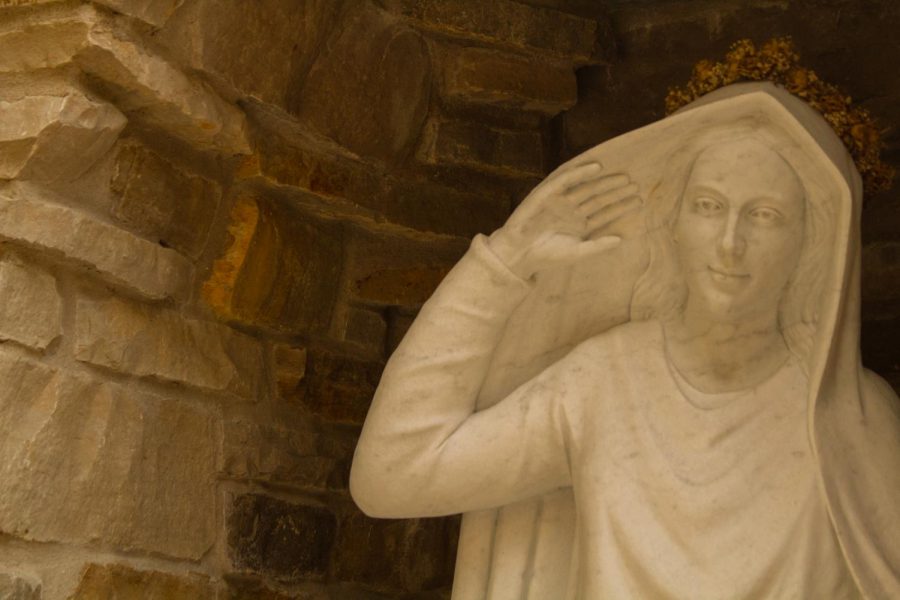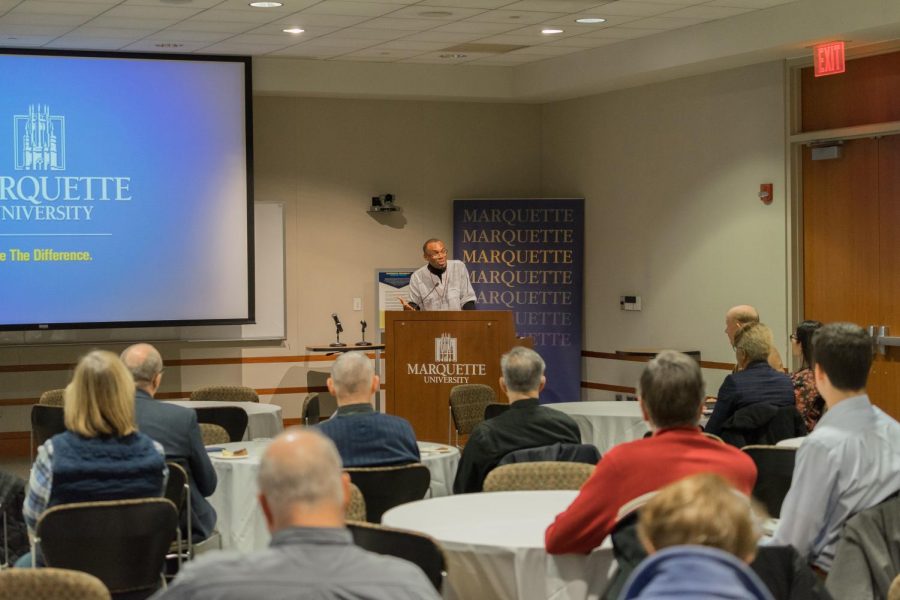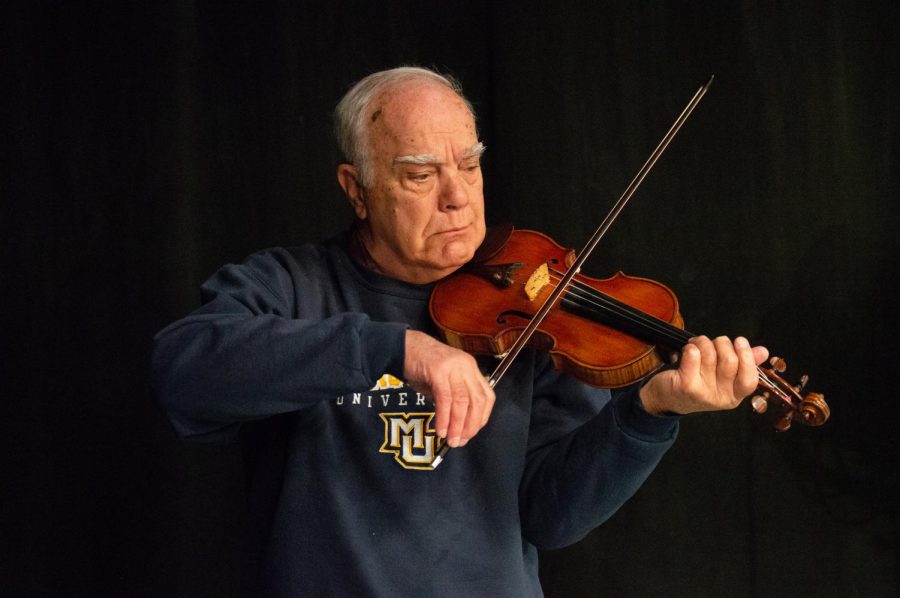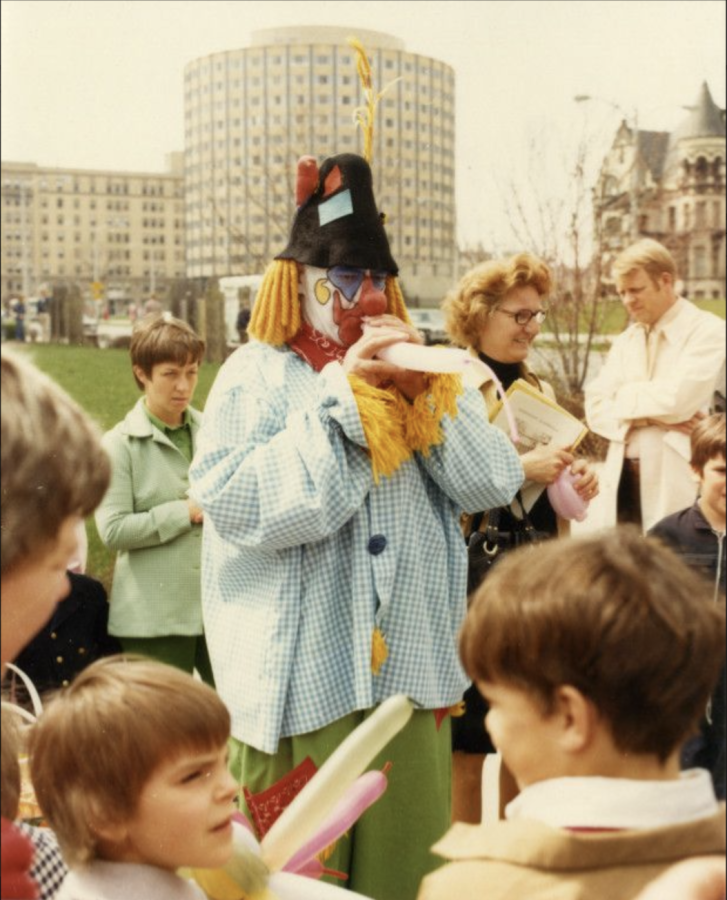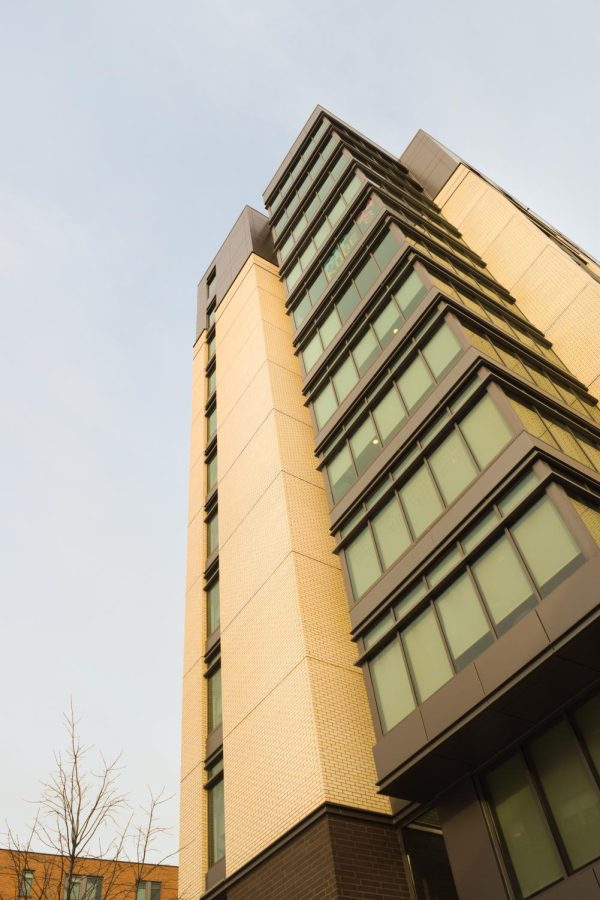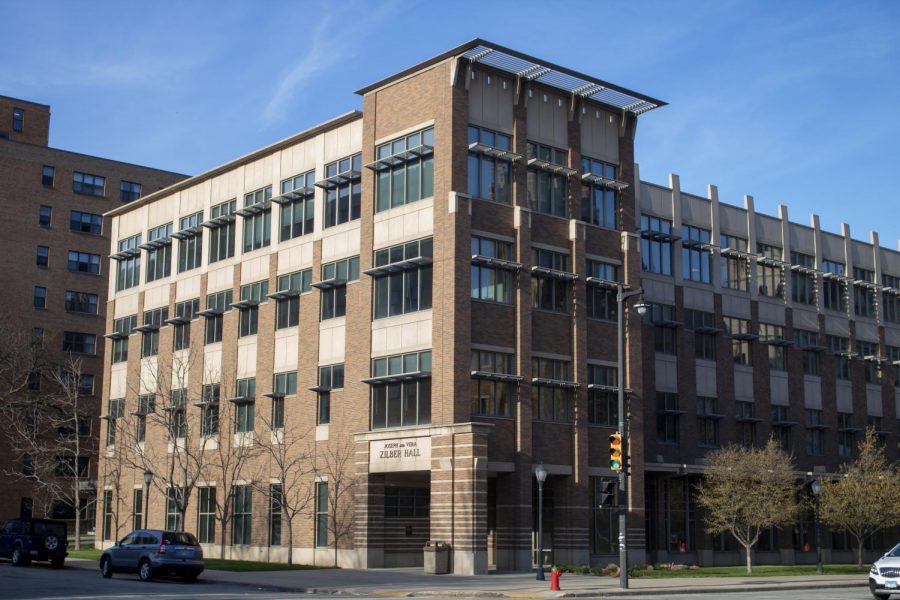Aug. 28, 1881, Marquette University officially opened its doors to 35 male students, 3 priests, 3 young Jesuits not yet ordained, and 3 lay brothers. One hundred thirty-nine years later, Marquette’s community houses 11,800 undergraduate and graduate students and 35 priests living on campus at the E.J. O’Brien Residence. Physically, the campus has expanded over 12 blocks on Wisconsin Avenue and has 58 buildings under its ownership. Through this growth, one aspect of Marquette has remained the same: it is rooted in Jesuit tradition.
The Jesuits decided to establish Marquette when Milwaukee’s first archbishop, Rev. John Martin Henni, expressed an interest in founding a Catholic, Jesuit university in the city. Due to a lack of adequate funding, nearly three decades passed before the doors of Marquette College opened in 1881. The college started off as a small liberal arts school for men and was named after Jacques Marquette, who was a Jesuit missionary in North America.
The Jesuits existed for centuries before Marquette University. Founded in 1534 by St. Ignatius and officially recognized in 1540 as an order, the Jesuits have dedicated their existence to praising God, service and education.
Michael Dante, director of the Faber Center, which is dedicated to providing faculty and staff resources to deepen their spiritual journey, believes that the Jesuits’ dedication to education is what sets them apart from other colleges and universities. Dante says he believes by combining curiosity for the sciences, humanities and faith, a Jesuit education is able to transform people in their totality.
“What moved [Saint] Ignatius … was how education really has the potential and possibility for social transformation,” Dante says. “Faith is such an important part of the human person, whatever the faith happens to be… how can we honor the questions faith raises, like what does it mean to be alive? … Those questions are welcomed.”
Dante says he feels that by including faith in the conversation, Jesuit education is able to encourage students to find their values. The education does not stop at your major or minor, but continues into students understanding themselves and their place in society.
Fr. Edward Mathie S.J., Jesuit priest at Marquette University, recalls why he was drawn to the Jesuits.
“I just liked being in something that made it clear we were making a difference as a group … [specifically] the fellowship, companionship along with the ministry,” Mathie reflects. “What remains very much a part of every Jesuit’s life is you go where the need is greatest.”
The Jesuits practice Ignatian spirituality, which helps build a pathway to deeper prayer, good decisions as a result of discernment and a dedication to serving others. While this is a practice of the Jesuits, it can be used by people of all faiths. It encourages a person to find the divine in all things, discern before making decisions, along with other topics that can be useful to anyone’s spiritual journey. Ignatian spirituality, according to IgnatianSpirituality.com, sees life and the whole universe as a gift, it gives ample scope to imagination and emotion as well as intellect, it seeks to find the divine in all things, it cultivates critical awareness of personal and social evil, it stresses need for discernment and it empowers people to become leaders in building a more just and humane world.
Ann Mulgrew, assistant director of campus ministry and director of M.A.P. and I.M.A.P. immersion experiences, says she believes that students and faculty of all faiths can grow from the practices of the Jesuits, particularly in understanding their spirituality.
“Ignatian spirituality is about you personally and your personal faith, and that is something that this university is really trying to uphold and acknowledge, particularly in the equity and diversity of the people on campus, because we aren’t all Catholic. Though Ignatian spirituality is Catholic-based, it can be used by people of all faiths because it is a really good model of best living.” Mulgrew says.
Cathy Melesky Dante, hall minister of Straz Tower, states that the Jesuits combine both religion and practicality into their practices, which helps make some Jesuit practices relatable to all people.
“St. Ignatius was a practical person. He was big into discernment, which is a sort of a prayerful way of making decisions. Discernment is about living from our values … and those decisions I think have an effect on our actions in the world,” Melesky Dante says.
Discernment, described as an 11 step process on IgnatianSpirituality.com, asks one to draw up practical solutions to an obstacle and to ask God to help avoid judgement and remain open to possible outcomes. Some of these steps include identifying the issue, praying for freedom from prejudgement, gathering necessary information, and doing a formal evaluation of the advantages and disadvantages of possible solutions. This process is taught in Introduction to Theology to students at Marquette University.
Through classes such as THEO 1001 and PHIL 1001, students at Marquette are given brief introductions to Jesuit history, how to use faith with other secular ways of thinking to make conclusions and how to form their own opinions on some of their deepest questions of life.
Kate Ward, professor of theology at Marquette University, designed her THEO 1001 class to focus on social justice issues and how religious thought can be used to address these issues.
“[The Jesuits] are known for being connected to contemporary justice issues — whether it’s refugees, economic justice, or migration,” Dr. Ward explains. “The type of work I wanted to do was getting done at Jesuit institutions first and foremost.”
Marquette’s dedication to issues of social justice, intrinsically related to its roots in Catholic Jesuit thought, are outlined in the university’s statement on Human Dignity and Diversity.
This practice of inclusion is Jesuit at its core and members of Marquette’s community such as Melesky Dante express hope that this dedication to inclusion is felt by all students and faculty.
“My hope is that people who aren’t Catholic can come to Marquette and experience generosity, hospitality and people who are trying to live their faith in a way that is a service to others,” Melesky Dante says. “It’s a part of Catholic tradition to recognize that God is present in other faiths and he is also present through people of no faith.”
One way that Marquette University is practicing Ignatian spirituality and attempting to be an inclusive community is through Campus Ministry.
Mulgrew says she hopes to help students understand that Campus Ministry is not just a source for Catholic students, and it is not an organization that aims to convert students.
“Our goal in campus ministry, and I would say anywhere on campus, is not to make someone something, it’s to walk with them within their own journey,” Mulgrew says.
Ward says she believes that Marquette shouldn’t shy away from including people of different faiths, because the presence of diversity doesn’t mean anyone has to change. It is only an opportunity for education.
“Just because you are learning about a certain tradition doesn’t mean that you are compelled to believe that, it just enriches your mind,” Ward explains. “I think learning about anyone’s beliefs or faith traditions should open your mind to those that are different. It’s like when you learn another language, you aren’t excluding all the other languages in the world.”
The mission statement of Campus Ministry states that, “Rooted in Catholic tradition and inspired by the life and charism of St. Ignatius of Loyola, we work together to meet the diverse spiritual needs and interests of Marquette University’s student community.”
This mission is achieved through the presence of worship opportunities at Marquette for Roman Catholic Mass, Eastern Orthodox vespers, Episcopal/Anglican prayer, Muslim prayer, Jewish services, Lutheran worship, and more. Specific worship opportunities, times, and locations can be found on Marquette’s Campus Ministry website. Beyond these already planned worship opportunities there are also service opportunities and more specialized ministries, which can be found on campus ministry’s website.
“Everybody is welcome at Marquette University because God has created each and every one of us and it doesn’t matter the color, the background, the this or the that, every person is sacred. It makes a difference for us on campus that every single person has a place in this whole,” Mathie says.
This story was written by Maria Crenshaw. She can be reached at [email protected].
In the fall 2020 printed edition of the Marquette Journal, “Jesuit Roots” included a picture of Fr. John P. Raynor, S.J., crediting a Marquette Wire photographer. The photo is actually courtesy the Department of Special Collections and University Archives, Raynor Memorial Libraries, Marquette University. A photo of the statue at the Marian grotto next to St. Joan of Arc Chapel, pictured here, was meant to go in its place. The Wire regrets this error.

